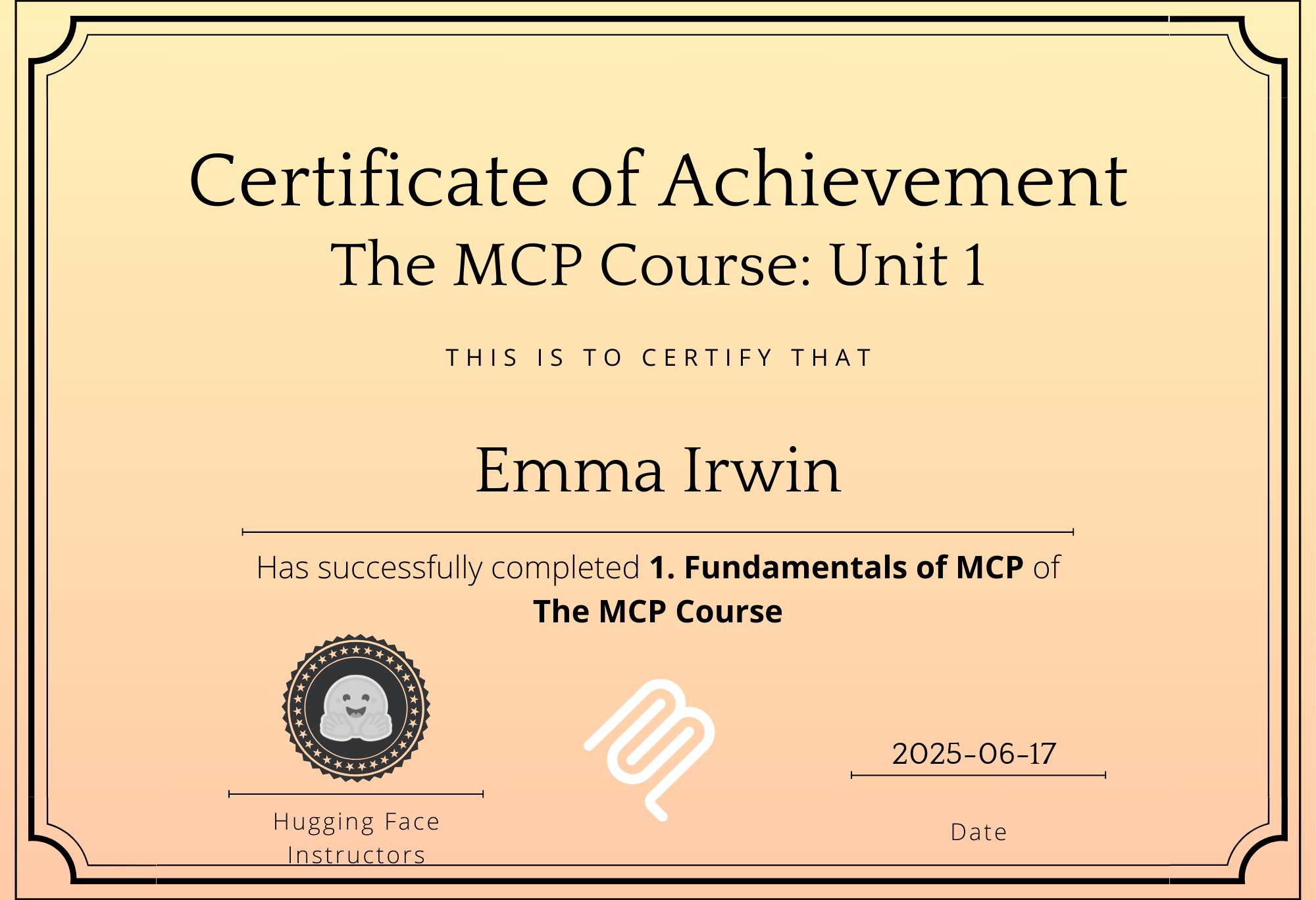What I've learned so far - Hugging Face MCP Course (Module 1)
It’s a buffet out there! If you want to learn about open source + AI, there’s no shortage of ways to start. I began with Hugging Face, the epicenter of machine learning developer communities. I noticed on LinkedIn that they were running an online course to teach folks about the Model Context Protocol (MCP) and jumped right in.
Positives for me of Module 1:
- MCP terminology is familiar—client, host, server—which made the learning curve gentler than I expected.
- I got my environment up and running using VS Code + WSL and integrated tools like Claude Coder and Continue.dev to run some basic examples.
- AI is a fantastic learning assistant: I sometimes used ChatGPT or Claude as assistants to break down complex technical sentences. It made me think about the future of such training - the 'new tooltip' is perhaps.
- Gradio-powered UI is very cool: I explored how the Gradio Python library integrates with MCP to serve a user interface locally or via Hugging Face Spaces. As a non-UI person, the capabilities are pretty exciting.
- Publishing a Space: I authenticated with and published my first Hugging Face Space . The 'Hello World' of this topic! Seeing something work for the first time, never gets old 😀.
Early takeaways
There’s still a lot I’m eager to explore:
- Building a resume powered by MCP might be a fun and useful project!
- Thinking ahead about tools for OSPOs:
- Speaking of useful - brainstorming ways to leverage MCP to transform my Microsoft OSPO Investment Framework into prompt-driven tools that help build business cases. The framework as it is, is quite time-consuming for someone to step-through, this could solve that.
- MCP’s might help isolate data needed for metrics and procedure, in a way that doesn't require a lot of data ingestion, or result in hitting rate-limits. Hoping to learn more about the opportunity in coming modules.
- I also started asking myself 'what are the security risks associated with MCP?' and learned that's a whole subject of its own. Of course it is!
- It’s easy to assume everyone knows how to build AI projects, but it’s clear we’re still in early days for AI, and especially how to describe 'opens source' AI—it reminds me of the early years of open source software and that's exciting.

